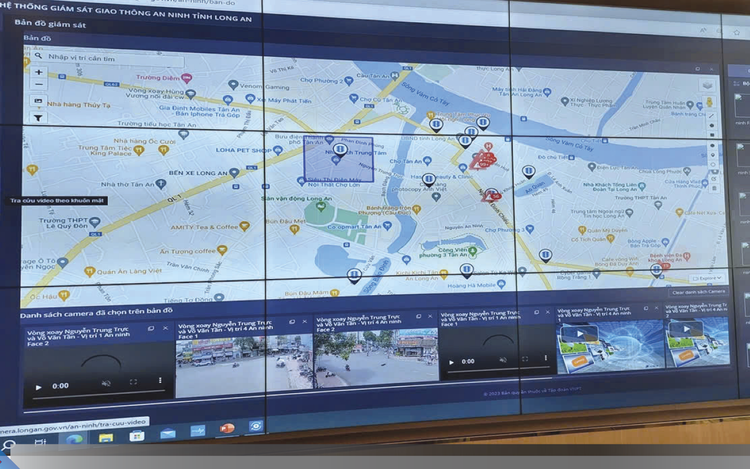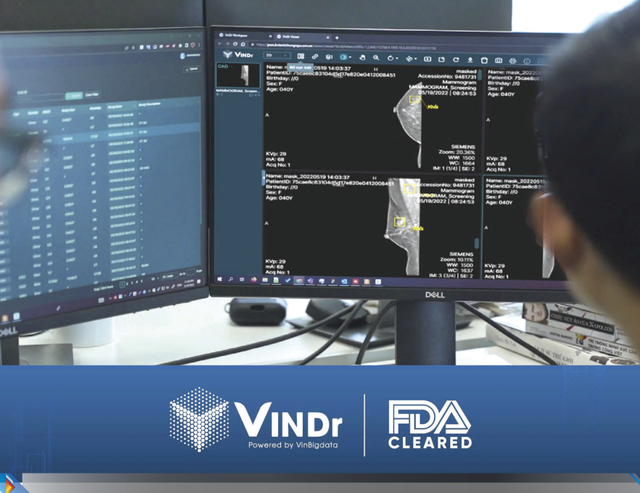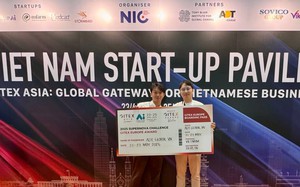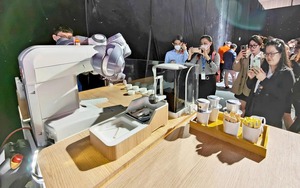
Tan An City in Long An Province, southern Vietnam installs 121 AI-powered cameras at 22 key traffic locations, helping reduce traffic violations by 80 percent. Photo: Mai Hong
As the world enters the era of artificial intelligence (AI), nations are racing to invest in technologies that are increasingly reshaping economies, societies, and everyday life.
Amid this global transformation, Vietnam is making strides to secure its place in the AI revolution.
Smart city: AI enhancing public safety
Tan An City in Long An Province, southern Vietnam began implementing AI-driven traffic monitoring using over 100 smart cameras installed at 22 key intersections in October, 2023.
Developed by state-owned telecom giant VNPT, the VNPT SmartVision system integrates image recognition technology that automatically records traffic violations such as running red lights, speeding, wrong-way driving, and failure to wear helmets.
These images are transmitted in real time to local police, who then notify offenders.
Within just six months, the local police reported an 80-percent drop in traffic violations, reflecting the system’s effectiveness.
Residents also noticed a significant improvement.
“Since the surveillance cameras were installed, people have been more aware. Drivers no longer park or turn at will as no one wants to get caught on camera,” said Vo Thu Phuong, a local in Tan An.
AI used both at home and in governance
AI is streamlining daily life in residential areas.
At many apartment buildings, traditional key cards are being replaced by facial recognition systems.
One such solution, Vizone Access by VinBigData JSC, enables residents to enter buildings and use elevators simply by scanning their faces.
This system is part of the Vizone intelligent image analysis suite powered by AI and computer vision to improve convenience and security.
AI is also making inroads into government administration. A prime example is the Ministry of Science and Technology’s online reporting platform, developed by Viettel AI.
The system has slashed the number of annual reports required to just 12 from 132 per locality, eliminating over 7,500 reports nationwide.

VinDr by VinBigData becomes the first AI product for mammography diagnostics in Vietnam to be cleared by the FDA. Photo: Duc Hoang
Favorable environment for AI development
At the GenAI Summit 2024 held in Vietnam in August last year, many experts from around the world emphasized the country’s growing advantages in AI.
With a young, tech-savvy population, a supportive government, and a vibrant start-up ecosystem, Vietnam is well-positioned to lead AI innovation in Southeast Asia and beyond.
“Vietnam is uniquely placed to lead AI innovation in the region,” said Nguyen Duc Toan, country manager of Google Cloud.
Local giants like Viettel and Vingroup are aligning with government initiatives to ride the global AI wave.
Dr. Le Viet Quoc, a scientist at Google, highlighted Vietnam’s strong government support for tech startups and investment, fostering a fertile ground for AI development.
In 2023 alone, Vietnam attracted over US$1 billion in tech start-up investment.
The maturity of the local start-up ecosystem now rivals that of Singapore and Malaysia, signaling its readiness for breakthroughs in AI.
Vietnam’s well-established educational tradition, particularly in mathematics and science, is another key asset.
Dr. Luong Minh Thang, a researcher at Google DeepMind, lauded Vietnamese students’ passion for mathematics, which underpins logical thinking and problem-solving skills crucial for AI development.
Vietnamese students frequently rank high in international math competitions, affirming the country’s deep talent pool.
Global partnerships are also strengthening this foundation.
Google had previously been committed to offering 40,000 Google Career Certificates scholarships to Vietnamese students and training 200 AI-focused Vietnamese start-ups through its AI Startups Masterclass program, supporting both talent development and entrepreneurial growth.
Dr. Vu Duy Thuc, a Stanford-trained AI expert and founder of OhmniLabs, pointed out that several Vietnamese professionals now hold key positions in leading global tech firms.
Despite its momentum, Vietnam still faces significant challenges in infrastructure and in attracting high-level talent, particularly in science and mathematics.

Viettel's eKYC (electronic Know Your Customer) system enables fast, time-saving customer verification while ensuring data safety and accuracy. Photo: Duc Tho
Wendy Uyen Nguyen, co-founder of the Rethink Healthcare Foundation, emphasized the need for rapid education and training in AI, especially in healthcare, where AI can have a transformative impact.
Vietnam is undergoing a remarkable transformation in the digital age.
From digital governance to smart cities and AI-powered start-ups, the Southeast Asian country is leaving its mark on the global technology map.




Max: 1500 characters
There are no comments yet. Be the first to comment.